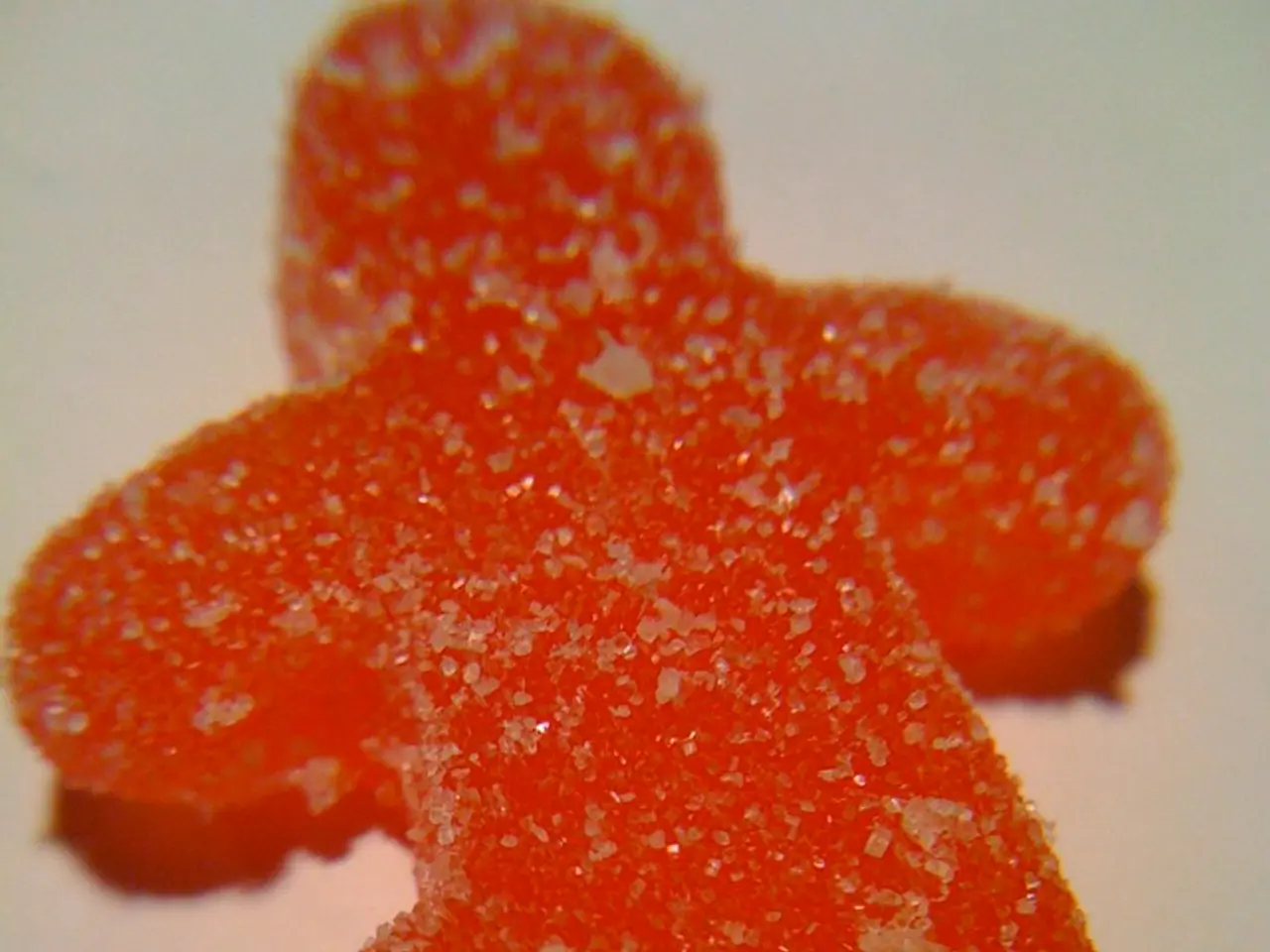Unveiling the Hidden Risks of Sugar Alcohols and Artificial Sweeteners: Crucial Information You Shouldn't Ignore
Artificial sweeteners and sugar alcohols, marketed as calorie-free alternatives to sugar, have become increasingly popular in various food and drink products. However, a growing body of research suggests that these substances may pose hidden long-term risks to our health.
While sugar alcohols like erythritol, xylitol, and sorbitol are generally considered safe for most people when consumed in moderation, excessive consumption can lead to digestive discomfort, such as bloating, gas, and diarrhea. These sweeteners are not fully absorbed in the small intestine and can pass into the colon, where they are fermented by gut bacteria, potentially leading to an imbalance in the gut microbiome.
Artificial sweeteners, such as aspartame, sucralose, and acesulfame potassium, are often promoted for their ability to not raise blood sugar levels and reduce cavity risk. However, frequent consumption of these substances has been linked to several health concerns. For instance, some studies suggest an increased risk of stroke, heart disease, and metabolic syndrome, which includes risk factors like abdominal fat, high triglycerides, low "good" cholesterol, high blood pressure, and high blood sugar.
Moreover, artificial sweeteners could potentially lead to neurological effects, including a nearly threefold increased risk of ischemic stroke and Alzheimer’s dementia associated with daily intake of artificially sweetened beverages. Brain cell damage and vascular effects linked with erythritol, a popular sugar alcohol/artificial sweetener, may raise the risks of stroke and heart attack.
Mental health impacts, such as cognitive impairment, increased stress, and worsened depression, have been reported with some artificial sweeteners like aspartame. However, these findings are not universally established.
In addition, some studies have raised concerns about the potential links between artificial sweeteners and metabolic disorders, such as obesity, diabetes, and metabolic syndrome. Dysbiosis, or microbial imbalance in the gut, has been linked to numerous health issues, including chronic inflammation, poor immune function, obesity, and even mood disorders like depression and anxiety.
When shopping for "sugar-free" products, it's essential to read labels carefully, as many of these products are ultra-processed and contain artificial additives, unhealthy fats, and refined ingredients. Consumers may also be led to believe that because a product is "sugar-free," it is automatically healthy, which could result in overeating or making poor food choices in other areas of the diet.
Moderation is crucial when incorporating sugar alcohols or artificial sweeteners into your diet. Overconsumption could lead to digestive issues, gut health imbalances, and potential metabolic disruptions. The frequent consumption of sugar-free products might inadvertently encourage individuals to overconsume these products without considering their long-term health effects.
A well-rounded diet, full of whole foods, is the key to achieving long-term health and vitality, rather than relying solely on sugar-free or low-calorie sweetened products. Natural sweetener alternatives may be worth exploring to avoid potential adverse effects without increasing sugar intake. As always, it's advisable to consult with a healthcare professional for personalised advice on diet and nutrition.
References:
- Obesity Reviews. (2019). Artificial sweeteners: a review of the role in weight management.
- American Heart Association. (2017). Artificially sweetened drinks and cardiovascular disease risk: a review.
- Food and Chemical Toxicology. (2014). Erythritol and its metabolism: a review.
- Nutritional Neuroscience. (2017). Artificial sweeteners and the brain: a review.
- Journal of Toxicology. (2018). Acesulfame potassium: safety evaluation 2018.
- While artificial sweeteners and sugar alcohols may seem like calorie-free alternatives to sugar, a growing body of research suggests they could pose hidden long-term risks to our health.
- Moderation is crucial when incorporating sugar alcohols or artificial sweeteners into your diet; overconsumption could lead to digestive issues, gut health imbalances, and potential metabolic disruptions.
- It's essential to read labels carefully when shopping for "sugar-free" products, as many of these products are ultra-processed and contain artificial additives, unhealthy fats, and refined ingredients.
- A well-rounded diet, full of whole foods, is the key to achieving long-term health and vitality, rather than relying solely on sugar-free or low-calorie sweetened products.
- Natural sweetener alternatives may be worth exploring to avoid potential adverse effects without increasing sugar intake.
- Artificial sweeteners, such as aspartame, sucralose, and acesulfame potassium, are often promoted for their ability to not raise blood sugar levels and reduce cavity risk, but frequent consumption has been linked to several health concerns, including stroke, heart disease, metabolic syndrome, and neurological effects.
- Brain cell damage and vascular effects linked with erythritol, a popular sugar alcohol/artificial sweetener, may raise the risks of stroke and heart attack.
- Mental health impacts, such as cognitive impairment, increased stress, and worsened depression, have been reported with some artificial sweeteners like aspartame, but these findings are not universally established.
- Some studies have raised concerns about the potential links between artificial sweeteners and metabolic disorders, such as obesity, diabetes, and metabolic syndrome, due to dysbiosis, or microbial imbalance in the gut, which has been linked to numerous health issues, including chronic inflammation, poor immune function, obesity, and even mood disorders like depression and anxiety.




